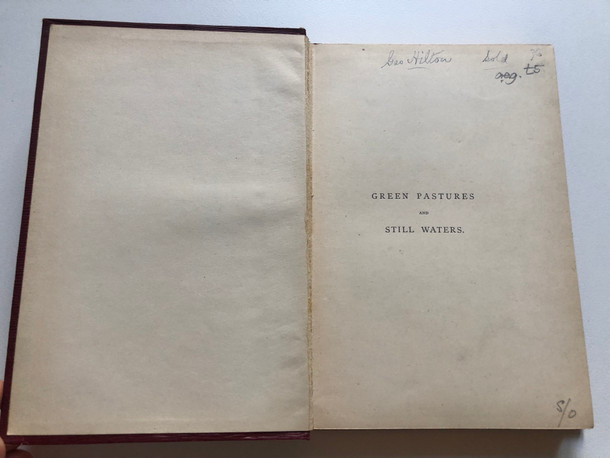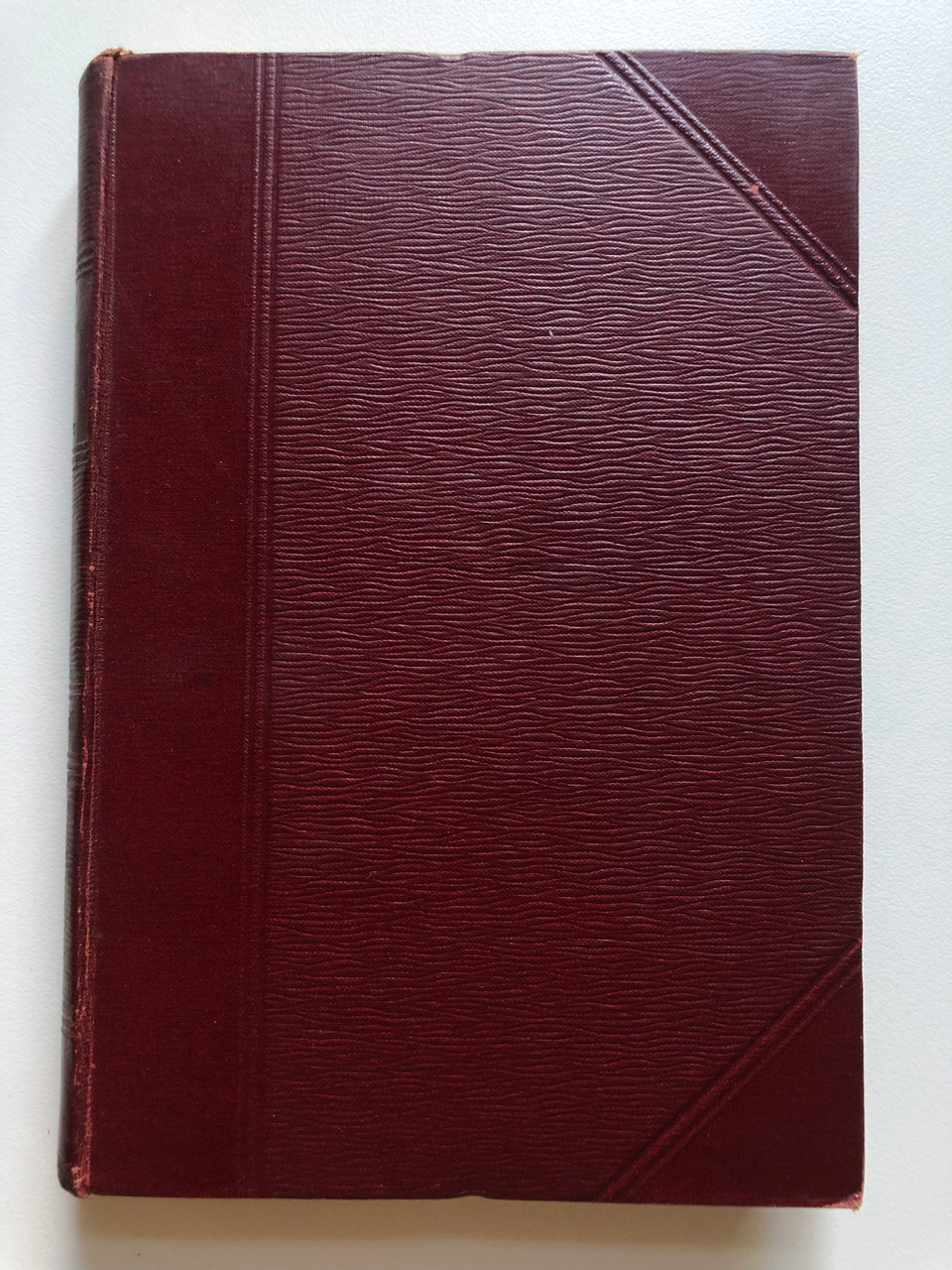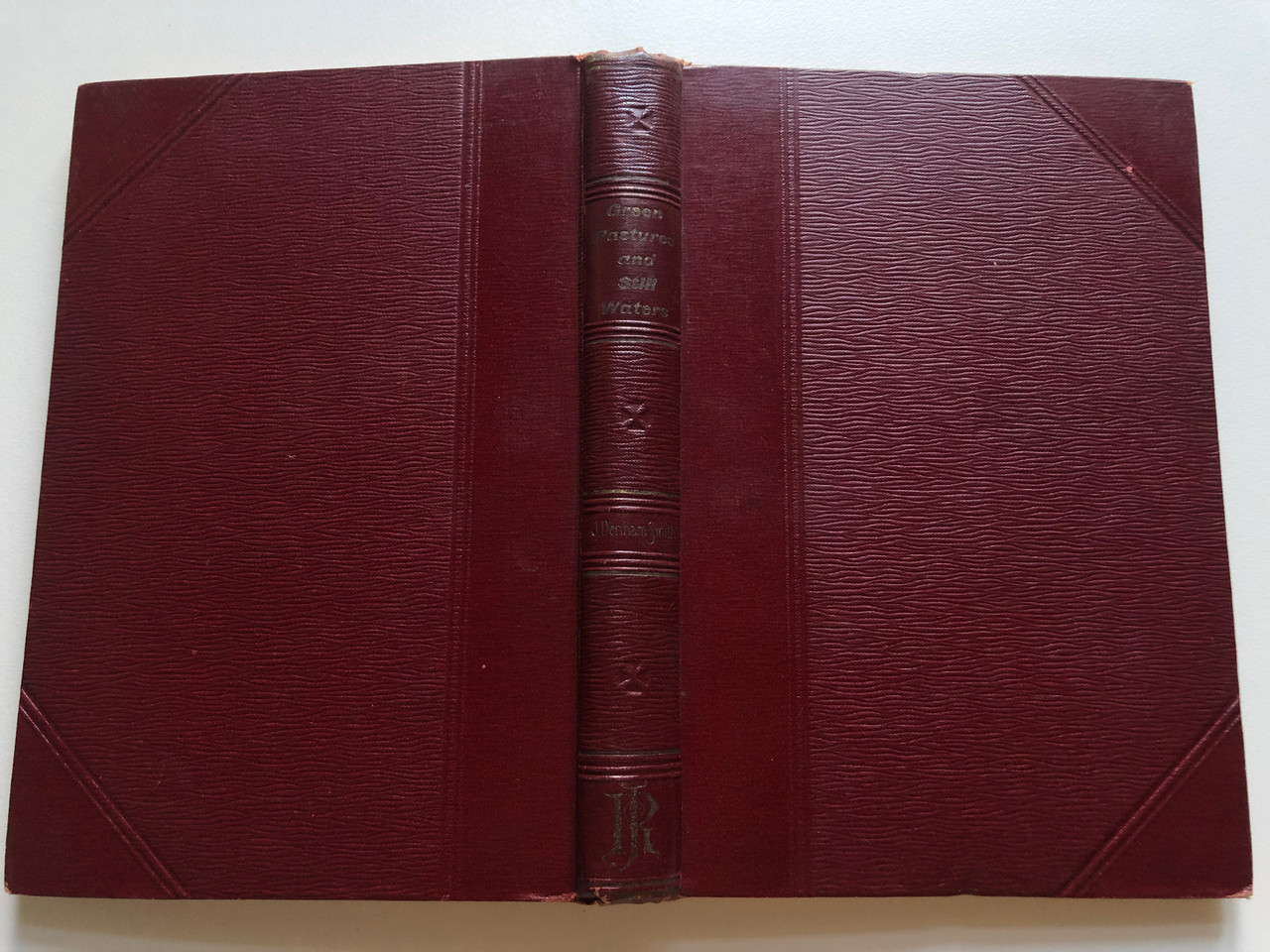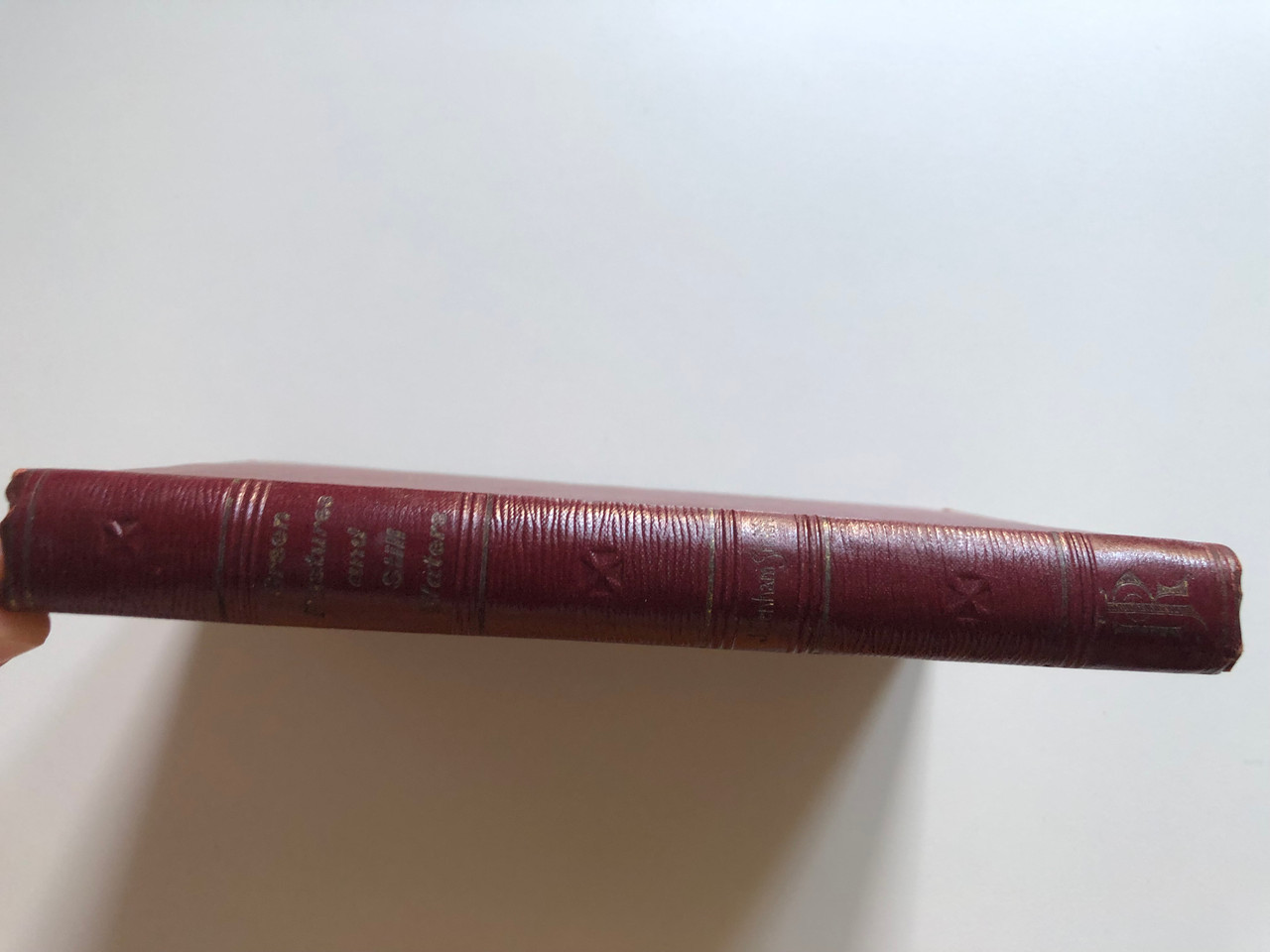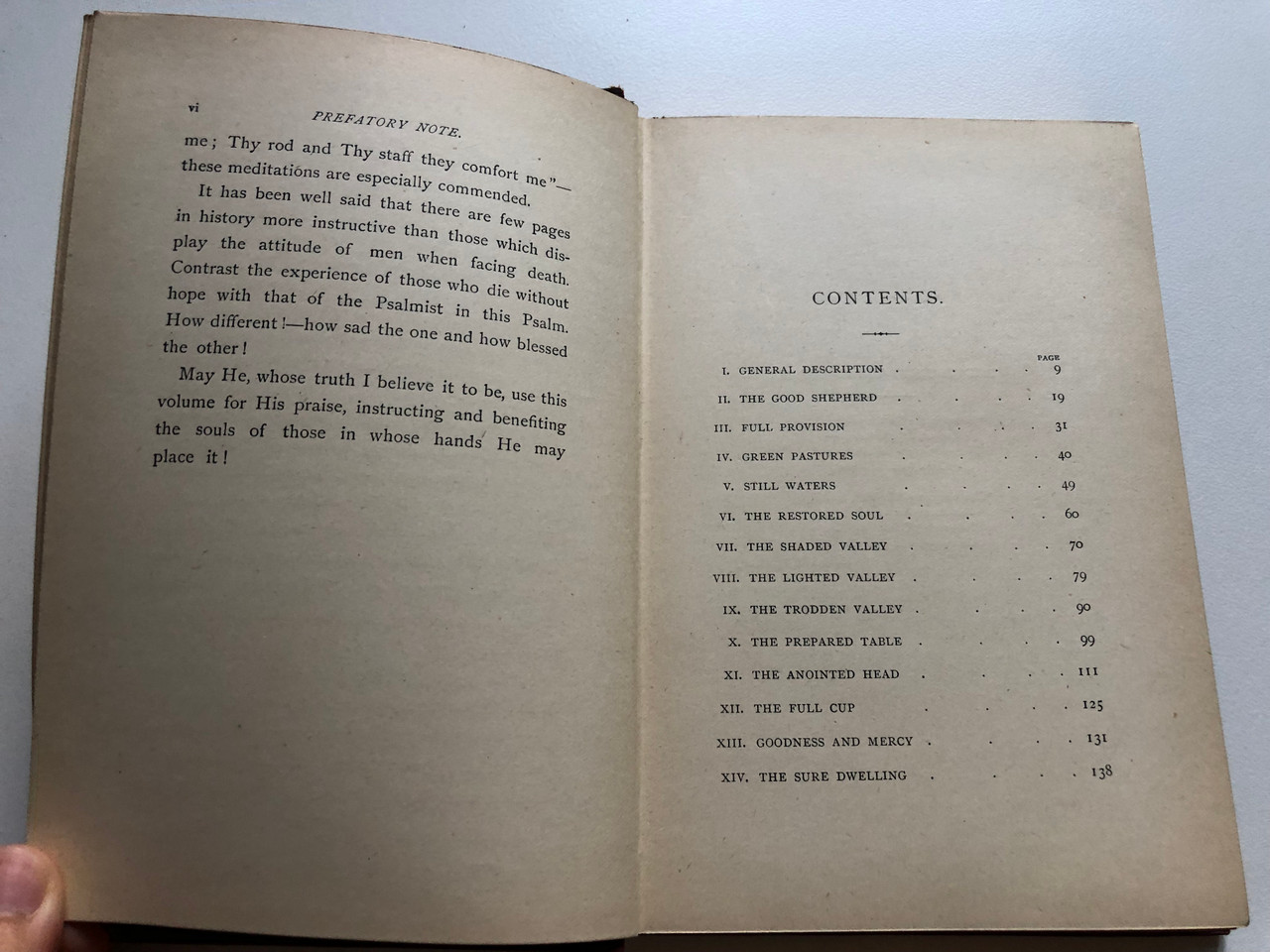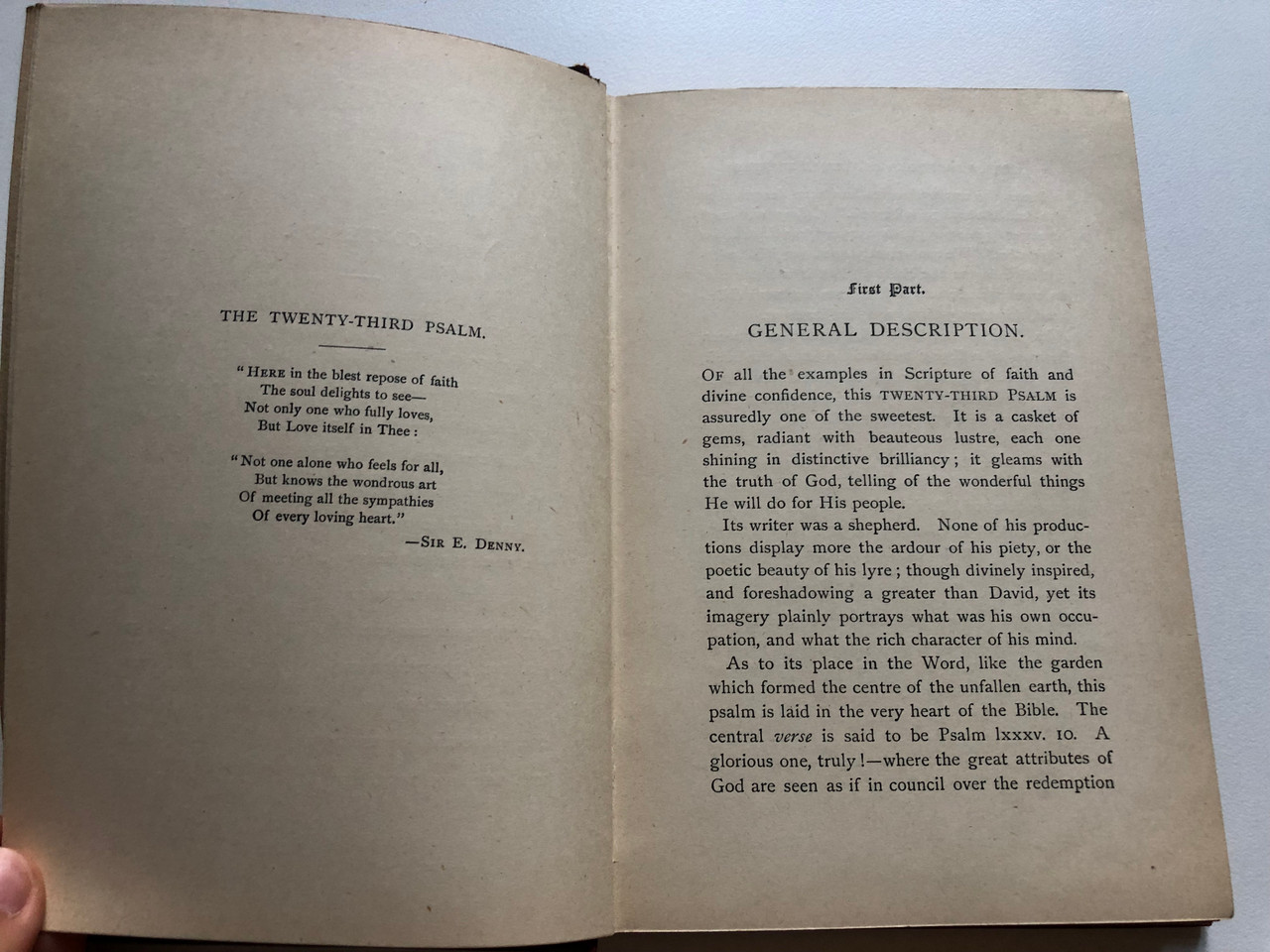Description
GREEN PASTURES AND STILL WATERS. (PSALM xxiii.) BY J. DENHAM SMITH / JOHN RITCHIE, PUBLISHER OF CHRISTIAN LITERATURE / Reprint of the original 1920
Hardcover
!!! Condition of this book is USED VERY GOOD !!!
This scarce antiquarian book is a facsimile reprint of the original. Due to its age, it may contain imperfections such as marks, notations, marginalia and flawed pages. Because we believe this work is culturally important, we have made it available as part of our commitment for protecting, preserving, and promoting the world's literature in affordable, high quality, modern editions that are true to the original work.
Of all the examples in Scripture of faith and confidence in God, Psalm 23 is assuredly one of the best known. It has come down to us as one of the sweetest songs to encourage us on the pathway home to Heaven.
The 23rd Psalm opens up with a curious equivocation, a “this is that” movement, introducing THE LORD as the shepherd. We’ll return to what this equation of the creator of all things with a sheepherder, but we first begin by asking about the verb that holds the equation together: the “is”.
The pursuit of the moral life is not one which begins, I think, with a command for its own sake, or with a rule without rationale. There is a place for rules and commands in the moral life, but that place is not in the beginning, for in the beginning, there is only God. There are no rules yet, no articulations of goodness, nor are there metaphors or analogies: there is only God.
And so, the “is” here stands as the gateway which precedes any future speech about God: without the being of God, prior to commands, directions, or dictates, the moral life becomes only discussion of the conditions of rules, flickers of light without any indication of where light directs us toward. In Thomas Aquinas’ Summa, it is with good reason that he begins with the eternality and essence of God before talking about any other topic, much less the moral life of the later questions.
That God “is”, prior to the analogies, prior to any comfort or counsel God provides, is the word of the burning bush: I AM THAT I AM is the question within our journey through the world. For the moral life takes us through the earth and all that is in it, not by constructing towers to heaven, but by all our ways being inhabited by the One who has come among us by always being. The eternality of God, before all starting points, frames the nature of our moral search in the most simple way: toward God.
In that singularity of the “is”, the eternality of God before all articulation of right or rule, is likewise the unity of God: that the God who gives us the way home is the simple God, Father, Son, Holy Spirit, who works in unified fashion in creation. The One who leads us through the world is the One who has always led through the world; any sense of division between the Decalogue and the Sermon, of the prophets and the Gospels, or of Law and grace, is put away here—the self-same God who always is speaks with a single word to draw that creation across time, through valleys and into the halls of enemies, that we might live in the house of the Lord forever.
And so, the Psalm’s start orients us by beginning with the God who is before creation, before time, that in our moral lives, there is a great deal at stake in the grandest of ways: we are being drawn by the God who is, present. Absent this, all speaking of ethics becomes hypotheticals, and all commands become vacant and abstract tyrannies. The moral life orients us toward God, because it is God alone who is.




